Learning Lake Ouachita with Matthee
The South African qualifier takes on the Forrest Wood Cup
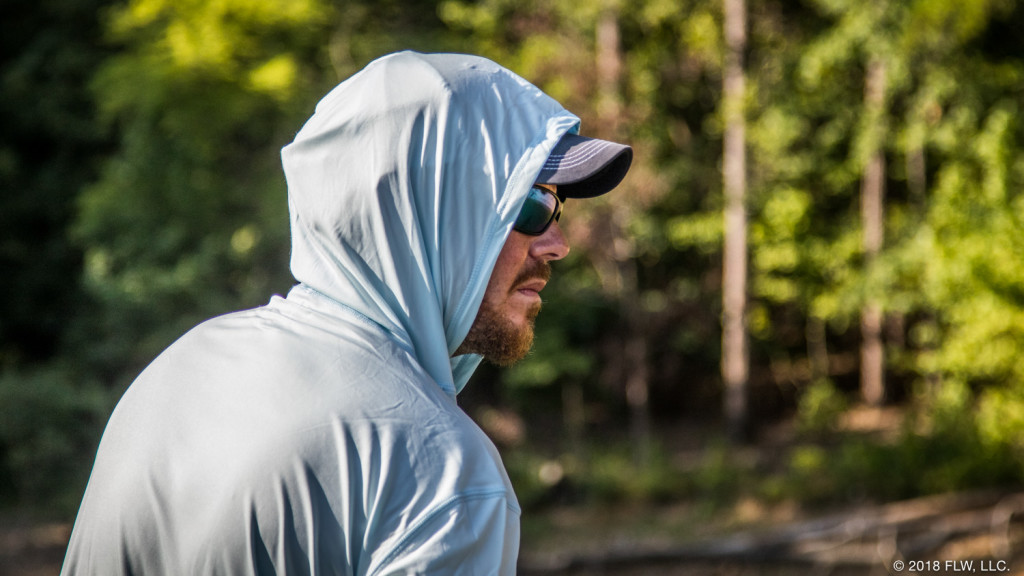
Nine months ago, Michael Matthee stepped foot on U.S. soil for the first time in his life. The South African angler crossed the globe to compete in the 2017 Costa FLW Series Championship at Kentucky Lake and take a shot at qualifying for the Forrest Wood Cup.
For Matthee, the trip was the first step in achieving his goal of becoming a professional bass angler on the FLW Tour. It’s where he earned his first bit of notoriety in this country by finishing in ninth place and earning a spot at the 2018 Cup, which kicks off on Friday.
Now, it’s final prep time for the 32-year-old cabinetmaker, who’s trying his best to understand the nuances of Lake Ouachita, a fishery that resembles more or less nothing in his home country.
Familiar or not, Matthee is ready to climb a bass fishing mountain as steep as the hills surrounding Lake Ouachita, and he’s invited FLW along on day one of the official Cup practice period to see how he prepares for the world championship.

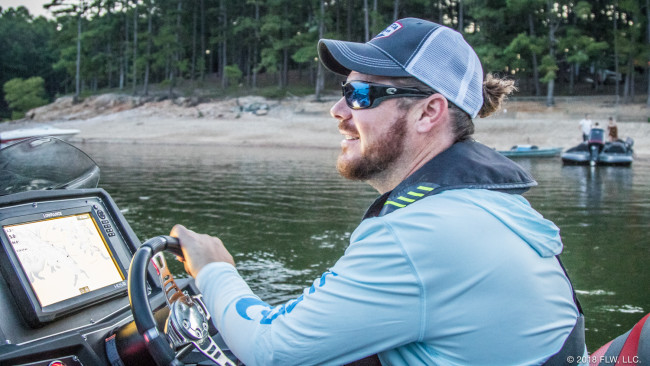
Matthee launches his borrowed Ranger boat with his borrowed Costa-wrapped pick-up truck at about 6 a.m. at Brady Mountain, the official tournament takeoff site this week.
He’s been in country for about two and a half weeks, which gave him enough time to spend four pre-practice days on the lake before it went off limits on July 23.
“I came up here early to try to understand the lake,” he says.
Back home in South Africa, Matthee doesn’t lack tournament experience (he says he fishes about two tournaments per month), but Ouachita has been a real challenge for him.
“Dude, this thing’s tough,” he says. “It’s not like any fishery we have at home. It’s a brainteaser for sure. It’s super overwhelming.”
Ouachita is substantially larger than what he’s used to. There’s much more fishing pressure. And there’s shad, which he encountered for the first time last fall at Kentucky Lake. Matthee has also had to make sense of local fishing and boating regulations, and sort out some terminology that was at first unclear.
“There’s loads of bait in this dam. See, we call lakes dams. A true lake is a natural lake. I watched your [FLW’s] videos, and I finally realized when you say ‘the dam’ you mean the dam wall.”
During the idle out from Brady, Matthee points out another difference in South African bass waters and Lake Ouachita when he spots a few house boaters hanging out on a nearby beach.
“Those people swimming in a lake all day, we don’t get that,” he says. “We’ve got crocodiles and hippos. Those things get angry, especially the males – the bulls.”
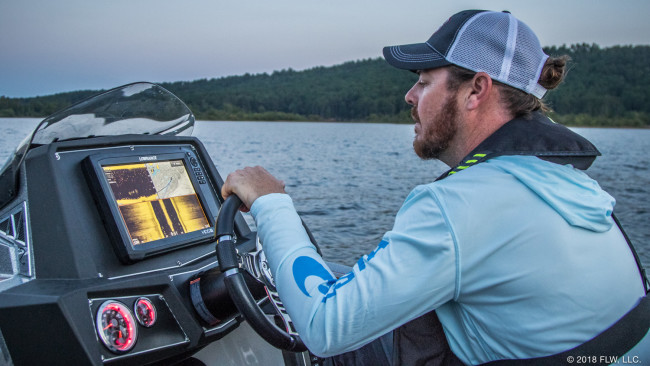
Once outside the no-wake buoys, Matthee puts it on pad and hangs a right. Though his pre-practice trip was mostly spent looking and not fishing, it revealed a so-so shallow bite that that earned him more bites than fishing deep. The deep bite was where he found the better quality fish.
Like many in the field, he’s still unsure which option will be most productive, so he plans to fish both during practice.

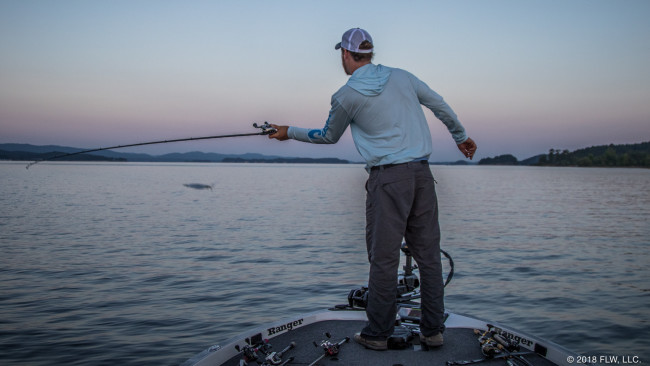
The first stop is an offshore hump, which Matthee scans and eventually stops to fish.
Though there are a couple lakes in South Africa where Matthee fishes offshore, he considers himself a shallow-water angler. In fact, he’d never fished a spoon before this trip to Arkansas. In pre-practice he managed to catch a few on casting model. It’s one of several baits he rotates as he works the edges of the hump. A Carolina-rigged ribbon-tail worm also gets some work.
“I’m a bank runner,” he adds. “That’s what I do. That’s what I’m known for.”
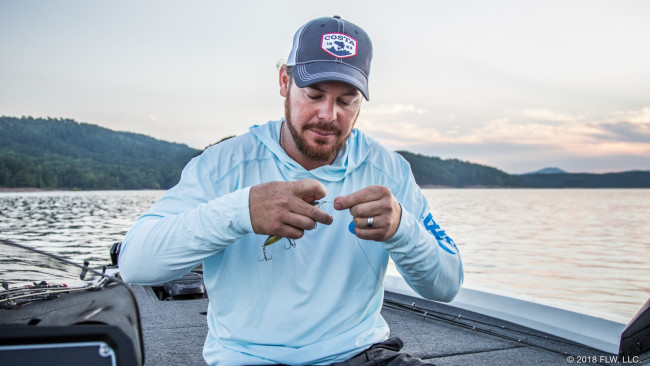
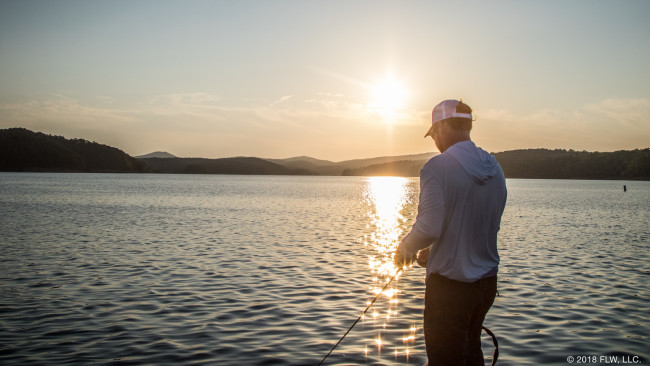
Matthee and his wife, Ronel, packed four bags for their flight from Johannesburg to Atlanta, and from Atlanta on to Little Rock. Most of that baggage space was reserved for tackle. Rods were packed into a tube. Matthee has also visited all the local tackle shops to stock up on some Ouachita staples, like 10-inch worms, a prop bait and some Zoom Horny Toads.
He spends nearly 30 minutes working every edge of the hump before strapping things down and making a short run.
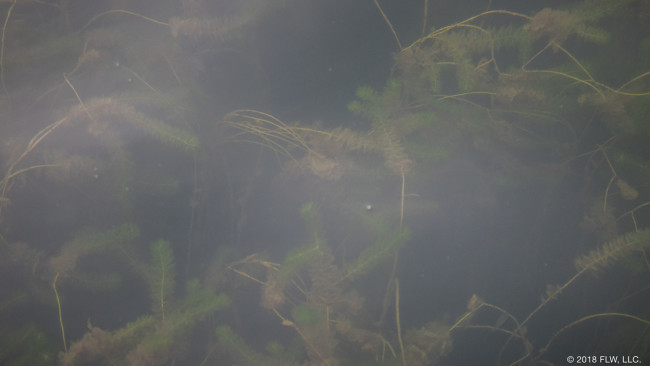
The next stop is a hydrilla bed growing on a shallow hump. He slings a topwater and talks about his hopes for the Cup.
Matthee wants to try his hand at the Tour, but he knows he needs some financial support to make it happen. The Cup could provide some of the cash or lead to sponsor relationships that would make it possible. Fishing the Tour would mean spending half the year away from home and from work, which is a big potential undertaking. He owns a cabinet shop that employs about 30 people and recently built some storage units, with plans to build more.
“That’s my retirement plan. If I could fish the Cup in four years, that would be better for me, but I’m fishing it now,” he says. “I’m not complaining though. I’m so grateful just to be here.”
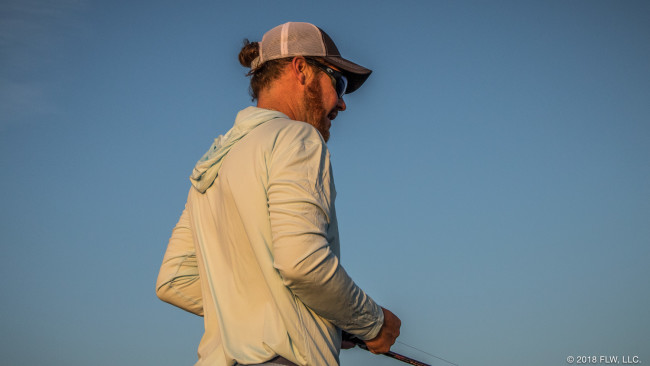
Topwater doesn’t draw so much as a sniff for Matthee. His next strategy is to flip and punch a Texas-rigged creature bait.
Other than some custom-made soft plastics that Matthee got from a friend, his tackle is identical to what bass anglers in the U.S. use. After all, he can have a Tackle Warehouse package in hand in three or four days after ordering. Local shops also sell most of the popular brands. He’s got a pile of Zoom in the boat.
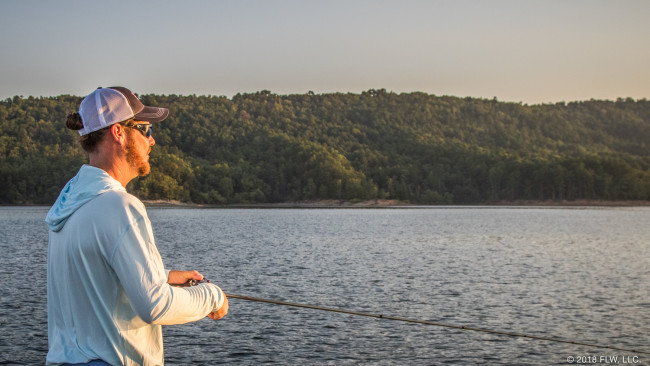
Matthee works the grass over very thoroughly. There’s some bait mixed in, and he rotates back and forth trying to get bit on topwater and plastics.
He says he spent his off-limits period fishing other local lakes, including DeGray, Hamilton and Nimrod. It’s been a learning experience for him. He was able to call fish up off brush piles in 15 feet, which he’d never done before, and caught a lot of fish. He and Ronel also made a trip to Memphis to eat BBQ and visit Graceland.
“It is a cool place, bro,” he says. “I stood in Elvis Presley’s lounge. That guy had 30 TVs in his house.”
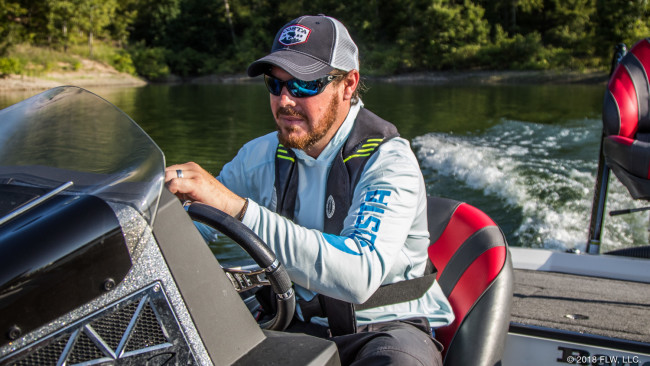

Matthee works a swim jig into his rotation in the grass before finally calling it quits and moving into a large creek.
A little graphing reveals some brush in a saddle, where Matthee goes to work dragging the Carolina-rigged 10-inch worm – after he lathers up with sunscreen.
He quickly gets a tap, but no eat.
“It’s nice and rocky down there,” he says. “That 10-inch worm doesn’t make sense to me. What does it represent? You throw that thing in a brush pile and they eat it. I can’t wrap my head around it. I wacky [rig] that brush or throw a crankbait and they don’t bite. Throw a 10-inch worm and they eat it.”
A couple more taps suggest there are fish around, but probably bream. He never gets that bass thunk he’s looking for.

Out comes a spinning rod, as Matthee tries to make one bite. He rotates in the spoon too. No takers.
It’s not the kind of fishing he’s used to. Most of the bass he chases forage on large baitfish such as tilapia, or other bream-type fish. He also targets more exotic species – by American standards – such as tigerfish and nembwe, or African bass. Plus three types of catfish, carp and various saltwater fish, when his schedule allows.
“I’ve been so focused on the bass, and my mates have got kids and I got married, so trying to get five or six mates on a sea boat is a pain nowadays,” he says. “We used to have a boys’ trip every year.”
Carp fishing sounds interesting the way Matthee does it. He uses a remote-controlled boat to haul his lines out away from the big boat.
Yet none of it is as appealing as tournament bass fishing.
“You know what’s so cool about bass is the competitiveness,” he says. “There’s nothing more competitive. It’s the top of the food chain. When you win an event, it’s so rewarding; so satisfying. You don’t get a better feeling in the world. But, like everyone says, it’s so humbling.”
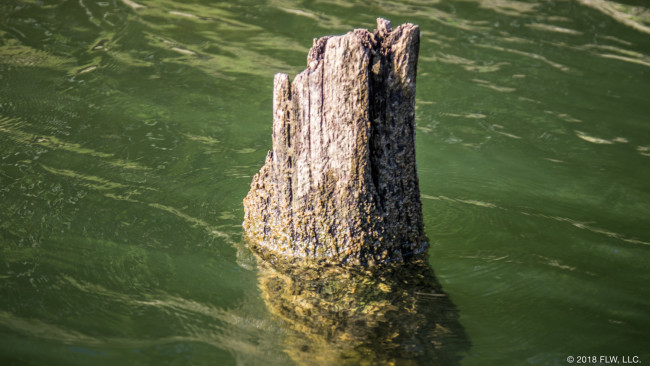
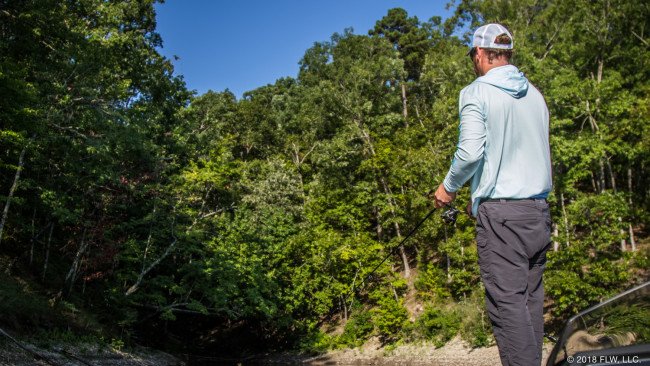
By 7:45, Matthee is ready to move again. He slides into a series of pockets in the back of the creek.
“This is where I caught my first keeper [in pre-practice],” he says.
The move signals a shift in strategy, to spend more time fishing shallow. Not only is he casting topwater and swimming a jig, but he’s eyeballing the shallows for bream, their beds and cruising bass. He purposely selected the clearest section of the lake today because the forecast called for sunshine, which makes the visual approach more feasible. He figures he’ll check other sections of the lake if the sky turns overcast later in practice.
“The water has cooled off a lot,” he adds. It’s about 89 degrees. “It’s at least 3 or 4 degrees cooler. I found some water that was 98 degrees [in pre-practice] up in the rivers. It was hot.”
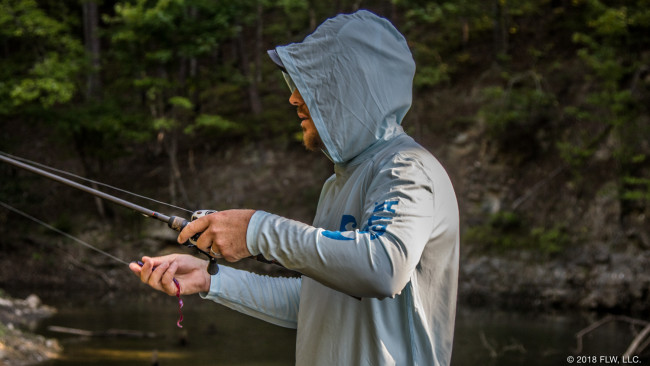
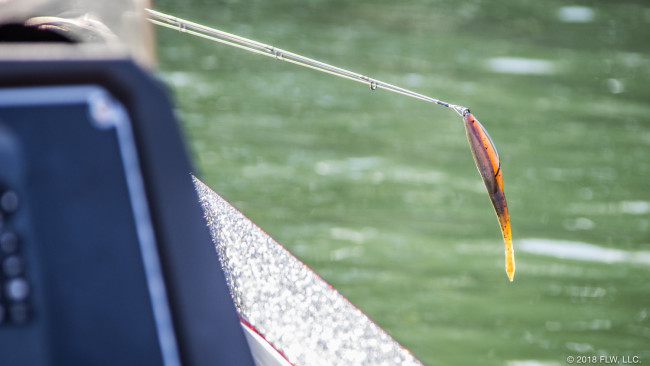
Everything looks good where Matthee is fishing, but he still hasn’t had a sniff. A weightless Yamamoto D Shad gets some work around shallow laydowns as he stays on the move, chatting and answering questions the entire time. He describes touring neighboring countries such as Mozambique and Zimbabwe, where much of his family lives, and traveling clear to the Congo. His truck is set up for overlanding and has a rooftop tent.
“Dude, that thing is kitted, man,” he says. “Me and my missus will disappear for a month.”
He plays a weekly indoor cricket game and has qualified with his team partner to fish the Bassmaster Team Championship in Florida in December. Matthee apparently doesn’t rest too often. He’s always hustling.
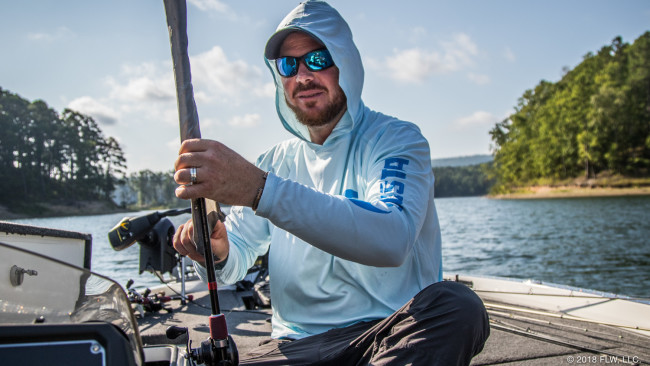
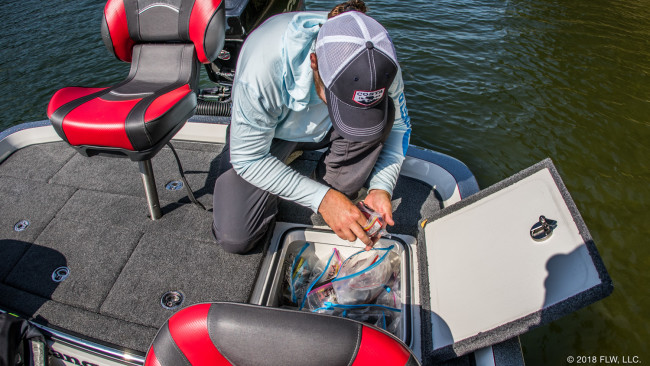
A small bass that busts his topwater and misses is the only good sign Matthee gets in this area before he packs up and runs to another shallow pocket. He’s gradually working toward the dam.
This new area has a little more bream life. They follow his baits and nip at his plastics.
“That’s a good sign,” he says. “There must be bass here.”
The cruising wolf packs that Ouachita is known for this time of year still haven’t shown themselves. That’s what he expected though.
“You can go hours and hours and not get a bite,” Matthee adds, “and then you’ll run into a pod of them.”
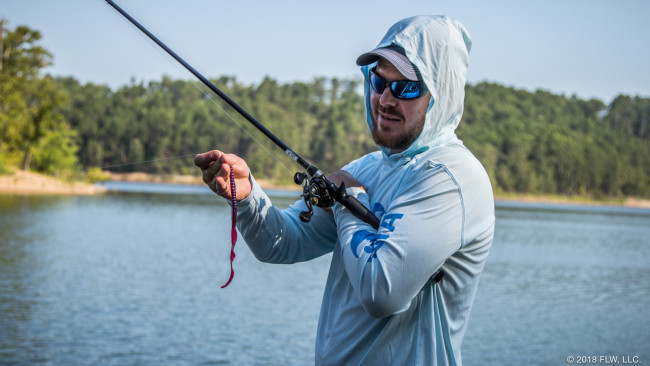
The pattern on the next few spots is the same: Target shallow pockets and adjacent points with topwater, the swim jig and some plastics, giving special attention to any wood on the banks. The Carolina rig comes out once in a while too.
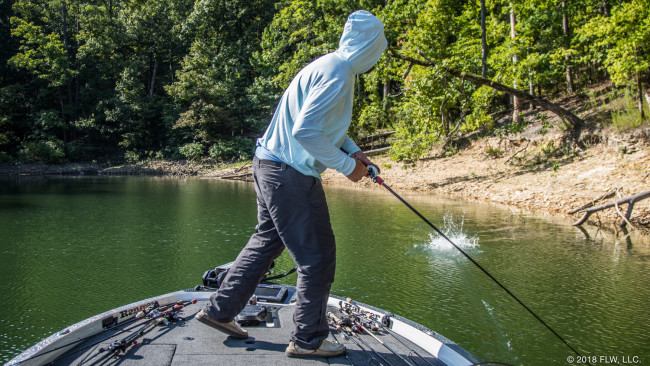

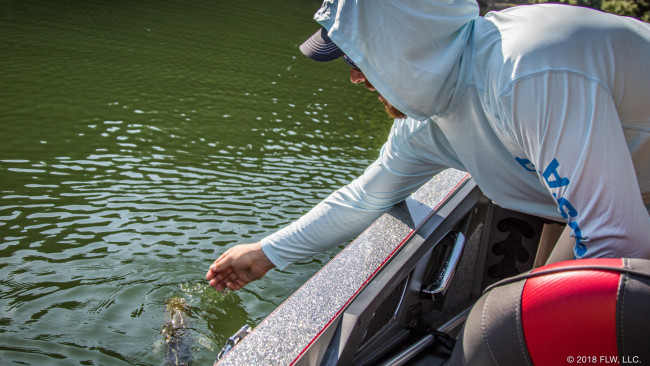
He gets bit every so often, but usually the kind of tap-tap-tap bites that signify a bream with eyes too big for his stomach.
Finally, close to 10 a.m., Matthee gets his first keeper bite on top and swings the fish aboard.
“Dude, you’ve just got to grind,” he says as he releases it. “You’ve got to keep going.”
Soon another keeper follows back to the boat. Shallow is looking OK. Not great, but OK.
“My plan today and every day is to figure out whether to fish deep or shallow. That’s why every two hours or so I change it up,” he says.

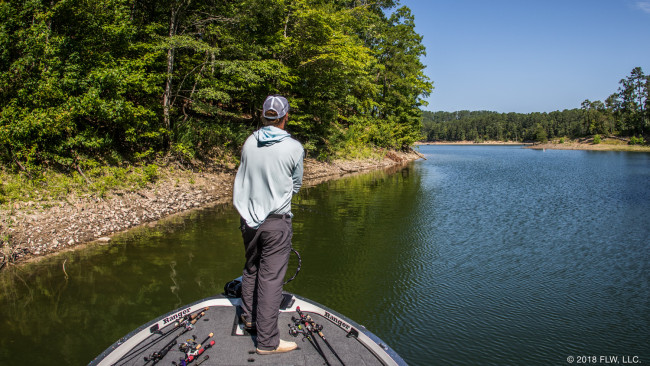
The next two stops are also spent shallow – in a small pocket and the back of a creek.
There’s not much happening in these holes.
“I’ve exceeded my two hours up shallow,” Matthee says. “I’ve got to go deep.”
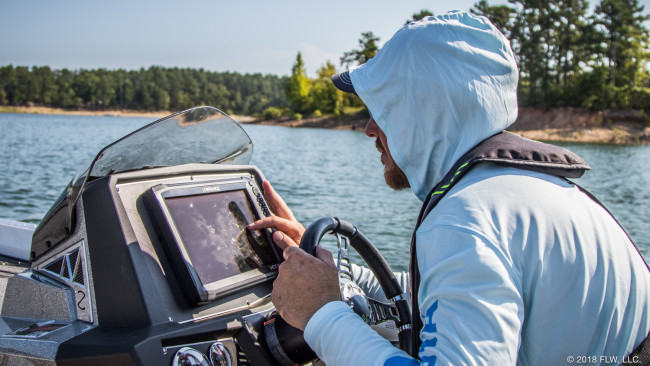
There’s an island on the way back toward the ramp with Matthee’s name on it. He fished it in pre-practice. Unfortunately, when he arrives, a scuba diving tour is taking place on one side, and Jeff Gustafson is fishing the other. Matthee scans a long point on the far vacant end before leaving the rest to Gussy and running to fish more pockets.
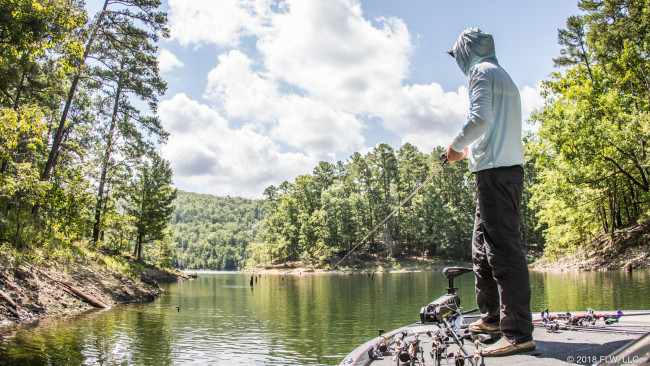
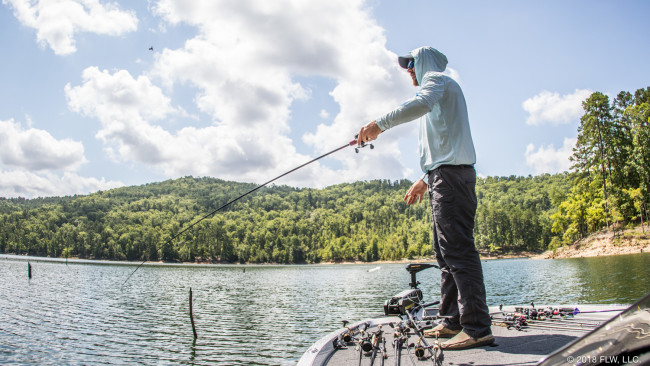
The next hour flies by pretty quickly without much to report. Matthee works points and pockets, tossing a little of everything at them.
Though he still feels like he’s only on a handful of bites a day, he’s getting a little more comfortable with Ouachita.
“When I first got here I was so overwhelmed,” he says. “I couldn’t figure it out. At home, fish would hang out in that tree [a nearby laydown] and wait for bait to come by. You could catch a limit off of it. Here, they cruise … I think.”
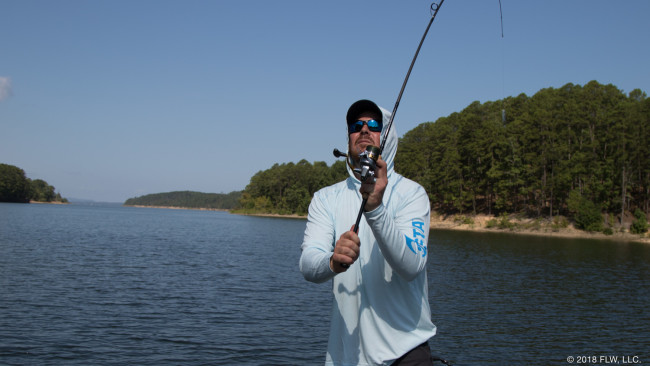
Matthee is keyed into the clear water. He’s using a lot of spinning tackle because he says he can sling lightweight baits a lot farther with a spinning stick in order to avoid getting too close and spooking fish.
It looks like it’s about to pay off when, on a long cast into a pocket, a fish busts his Super Spook Jr. twice and misses.
“That sounded good,” he says. “Let’s throw a weightless in there and see what happens.
“Come on,” Matthee says softly. “Eat my rubbah worm.”
Apparently the bass in Arkansas don’t understand his accent because they don’t comply.
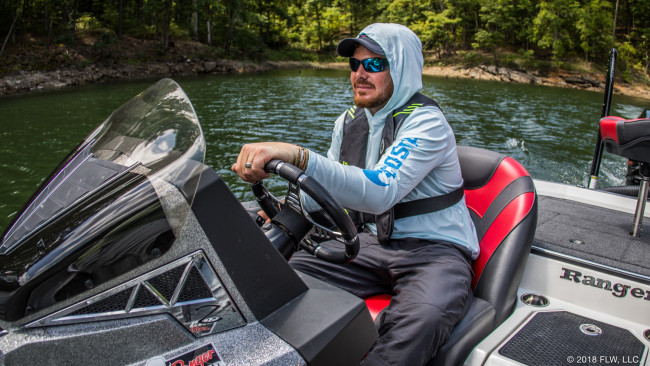
The final stop of the morning is back out at the island he graphed previously. Matthee drags a rig around on the long, tapering point. He gets no takers.
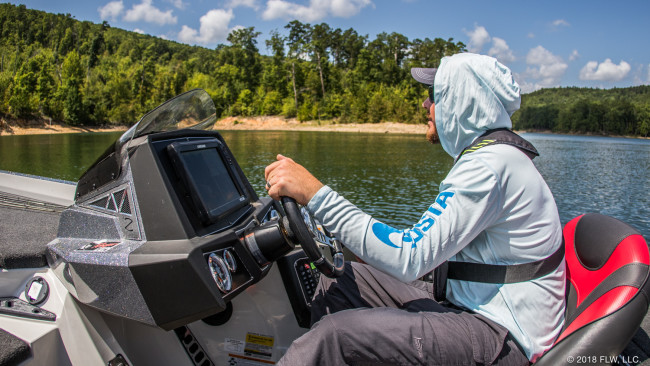
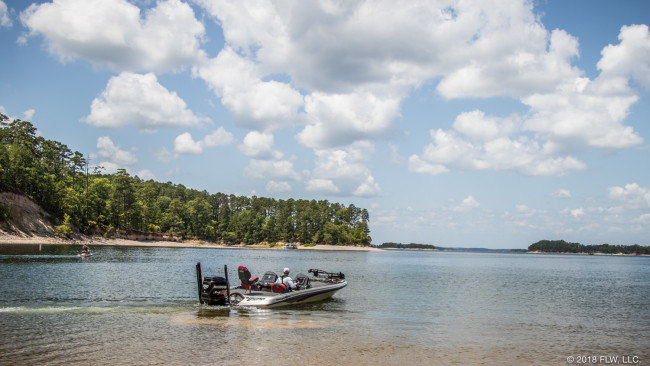
There’s a lot of lake left to fish and a lot of time to fish it for Matthee, who hustles back to the ramp to drop off his tagalong reporter at about 12:30. He says he’ll need every bit of the four-day practice period to learn this lake and get prepared for the biggest tournament of his career.
Regardless of how it turns out, Matthee has already made it here, to the Cup, and he’s already earned another trip to the U.S. for the Bassmaster event this winter. If he’s planning on building a pro career in America, those championship qualifications are awfully big cornerstones on which to construct it.